Berlinale #2: "Cuckoo", "La Cocina," and "All The Long Nights"
 Saturday, February 17, 2024 at 3:00PM
Saturday, February 17, 2024 at 3:00PM by Elisa Giudici
There are days when every film starts off more than promisingly. Your heart races because you think you're about to watch a great movie, but movies don't always live up to their promise.
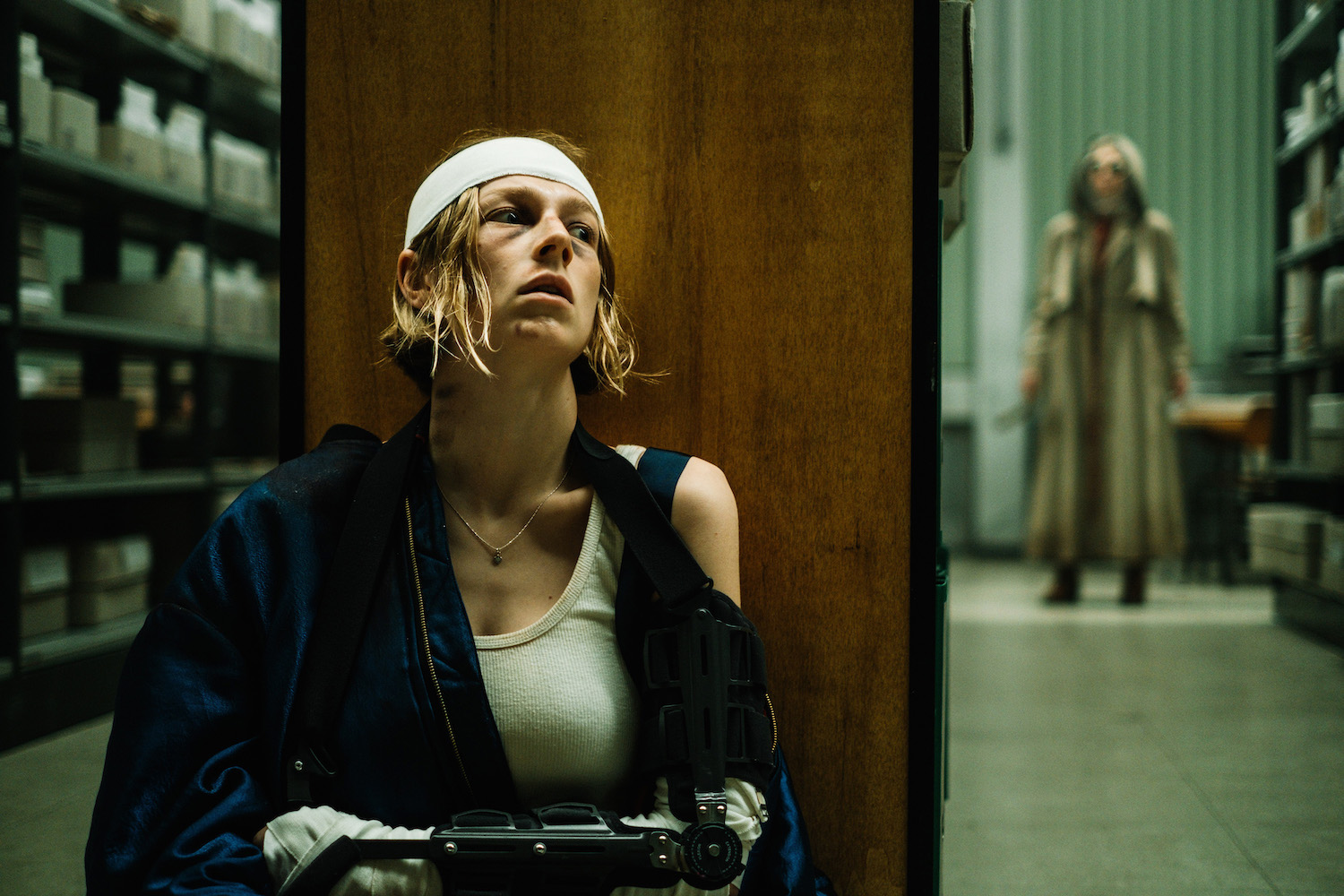 CUCKOO © NEON
CUCKOO © NEON
CUCKOO by Tilman Singer
This year's Berlinale promises a wealth of intriguing horror films. Unfortunately, the first one to be presented, one of the most anticipated this year, turns out to be a classic case of a film with a phenomenal start that derails just as spectacularly while seeking its development and conclusion. Despite the film being far from successful, there's a clear impression that, with a bit more experience, writer/director Tilman Singer is destined for a very bright future...
Singer's nightmare is set in an idyllic German mountain landscape. This is the new reality for Gretchen, a 17-year-old American who dreams of returning to the United States, to the house where she lived with her parents before her mother passed away. Now her father has remarried and taken her with him to the German forests, along with his new partner and Gretchen's adopted little sister. The parents are busy building a resort alongside an existing hotel, surrounded by bungalows. The owner of the hotel, Mr. König (Dan Stevens), immediately adopts an ambiguous, disturbing, and even somewhat slimy attitude towards the girl, who accepts a job at the reception of his hotel to escape from a family she doesn't want. However, unsettling things soon happen at the hotel: confused women appear, vomiting on the floor, and wandering around.
The beginning of Cuckoo is very intriguing, merging a 1970s German film aesthetic (and certain exaggerated and stereotypical elements that almost seem to come from an old Teutonic pornographic film) with captivating music and sound effects. There are references to the German legend of the Pied Piper of Hamelin, and the use of color and blatantly fake and very red blood is reminiscent of Dario Argento's style. It's evident that Singer loves old-school horror and wants to create something contemporary with a retro taste. He also has a knack for casting. After her breakout on Euphoria, Hunter Schafer proves to be an excellent big-screen queen, too. Her angular face, her ability to embody teenage boredom and hostility, along with a clumsy tenderness hidden in her tomboy clothes, are perfect for the role. Dan Stevens is equally impressive in a role that, from his first to the last line, is so over-the-top that you can't help but laugh with him, wondering how only Gretchen is unsettled by him.
However, when clarity begins to emerge about who is behind the strange events at the resort, the answers are muddled, the developments rushed and unrealistic, that they destroy the tense and horrific atmosphere of the story. This will lead many audience members to disconnect, to laugh rather than be scared. On paper, there are still many impactful scenes, but they have completely slipped out of Singer's control. Cuckoo, at its core, seems to sense this, rushing to explain itself, exacerbating the situation. What a shame.
Cuckoo will be released by NEON in the US
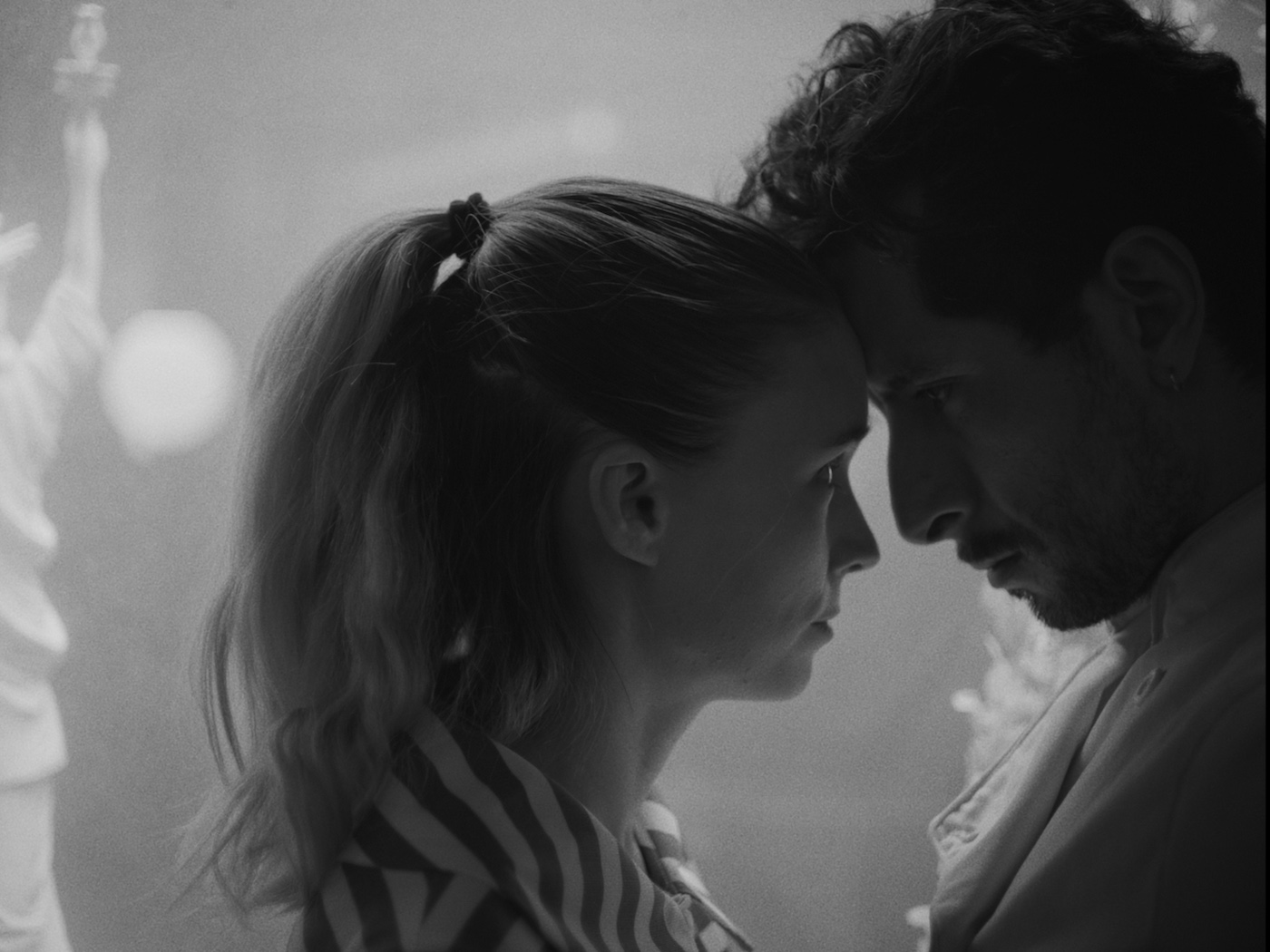 LA COCINA © Juan Pablo Ramírez / Filmadora
LA COCINA © Juan Pablo Ramírez / Filmadora
LA COCINA by Alonso Ruizpalacios
The press already sees La Cocina as a potential Golden Bear winner. However co-writer/director Alonso Ruizpalacios, much like the protagonist Pedro, falls victim to his own ambition and self-satisfaction, displaying excessive confidence in pursuing his goals without questioning the methods he's chosen.
La cocina is a loose adaptation of Arnold Wesker's play of the same name, which was highly successful in 1957. We're thrust into a bustling restaurant kitchen where anything can happen. Stress levels are sky-high, with the incessant noise of orders printing from the machine as a primary element in the soundtrack. Waitresses rush back and forth in uniform, and many of the cooks have irregularly immigrated from South America. Behind the shiny facade of The Grill restaurant unfolds the lives and dreams of irregular migrants.
The film is shot in black and white, with brief flashes of primary colors, and alternates between 16:9 and 4:3 formats. Think of "The Bear" and The Menu, directed by Robert Altman or Alejandro González Iñárritu, set in a restaurant where food porn is banned. This is a tourist trap with questionable hygienic conditions (cooks smoking cigarettes while cooking) and romantic escapades in the refrigeration room. La Cocina is less about food and more about the racist, hierarchical, and macho environment that fuels Manhattan kitchens during their daily rushes.
Ruizpalacios cooks up a political film about the relationship between the United States and South America, intertwining the solitudes of protagonists who struggle to communicate in their own language. He seamlessly blends poetry with raw realism, portraying the love story between gringa waitress Julia and troubled irregular Mexican cook Pedro amidst malice, selfishness, and recklessness.
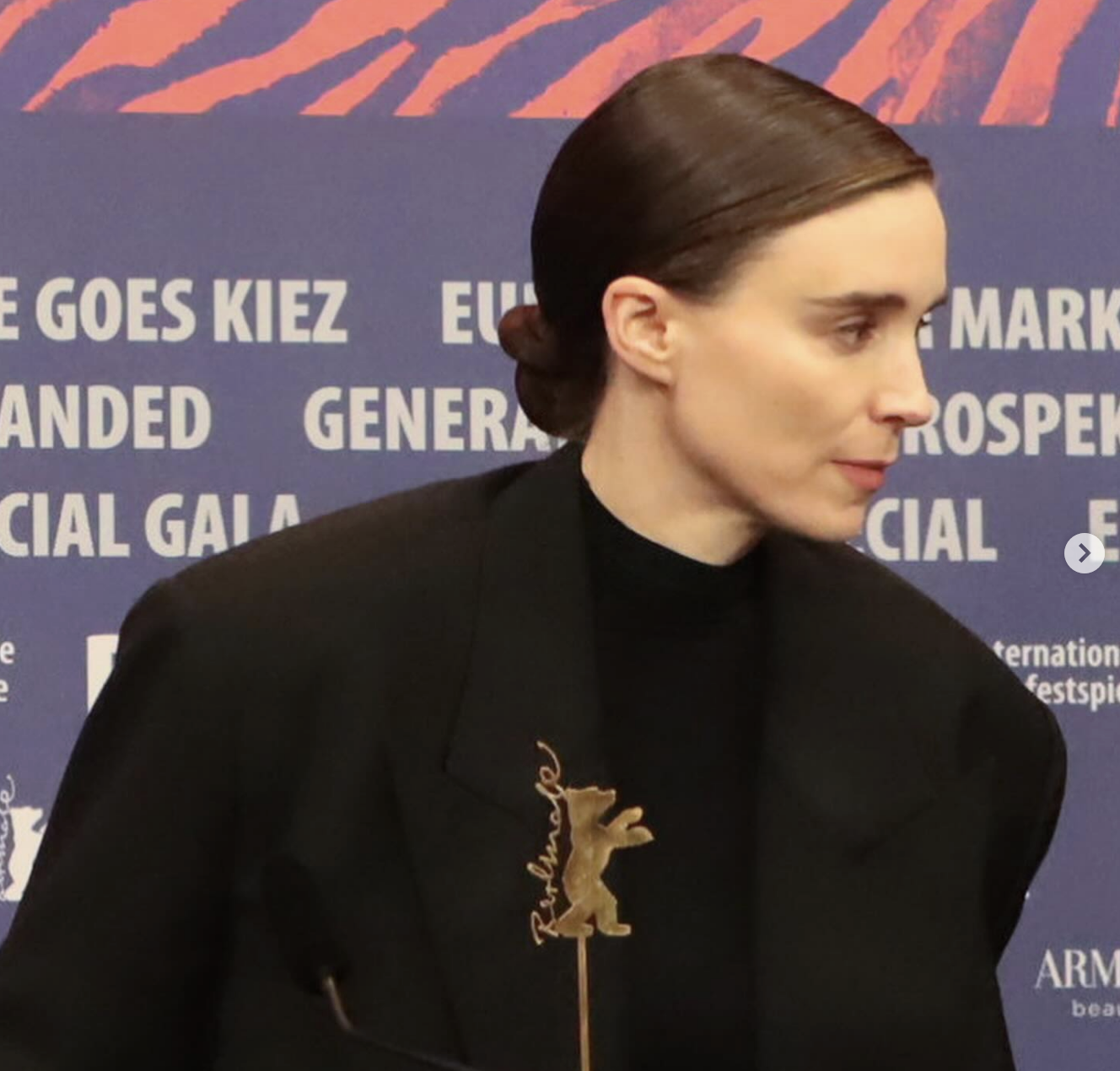 Rooney Mara © Elisa Giudici from Instagram
Rooney Mara © Elisa Giudici from Instagram
In the ensemble cast, stories unfold through the eyes of Estella, a young cook navigating the chaos of Manhattan's kitchen. The frenzy in a kitchen flooded with cherry Coca-Cola, becomes a memorable directorial showcase, culminating in a Shakespearean climax where Pedro momentarily halts the unstoppable kitchen machine. Like that unfortunate flood, La Cocina suffers from excess, trying to be everything and ending up indigestible. While it wouldn't be an unjustified Golden Bear winner, it may prove as divisive as Birdman.
Among the trio of protagonists Rooney Mara shines bright, showcasing her versatility and stepping away from her usual introverted typecasting. Her co-star Raúl Briones (A Cop Movie, I Carry You With Me) tackles a high-voltage, dramatically exaggerated role with the kind of humanity and depth that's coveted by Hollywood stars hunting for Oscars.
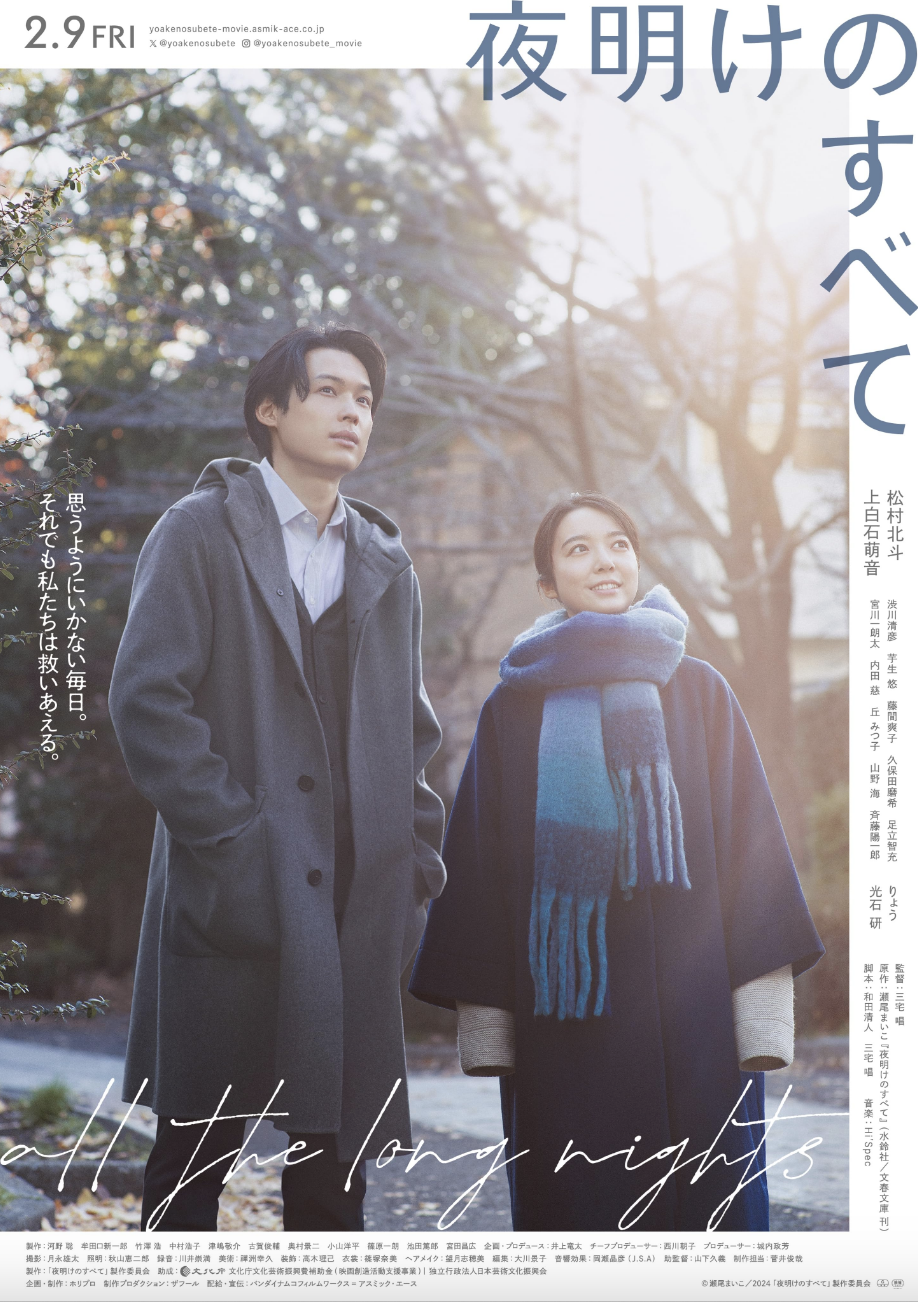 ALL THE LONG NIGHTS / YOAKE NO SUBETE by Shô Miyake
ALL THE LONG NIGHTS / YOAKE NO SUBETE by Shô Miyake
It's hard not to mention Wim Wenders' Perfect Days when seeing yet another portrayal of Japan depicted as a world devoid of malice. An idealized place where society and individuals don't seem to conceive malevolent thoughts towards one another. After all, the Japan of delicate sentiments, subdued voices, analog and seemingly anachronistic work, and a small-scale yet emotional and spiritual daily life is a facet of the nation that locals love to hear about and foreigners have a true soft spot for.
Shô Miyake is, then, forgiven for this overly idyllic context, which clashes with what statistics and news tell about the country. His new film All the Long Nights fights against a great stigma. It's not easy to talk about mental distress, especially in a country where there's a deep stigma surrounding those conversations. Miyake's movie calls things by their name, even opening with an almost didactic voice-over guiding us through the clinical history of the film's female protagonist. Fujihawa suffers from PMDD (Premenstrual Dysphoric Disorder) in a severely debilitating way. Every year her situation worsens. She alternates between catatonic episodes and outbursts of hostility towards those around her. She's an adult, lives alone, but suffers from her mother's constant attention.
The male protagonist of the story, Yamazoe, suffers from panic attacks. They both find themselves working in a family-run company that produces science kits for children and schools. Initially, they get on each other's nerves, but slowly they come to understand each other through their illnesses.
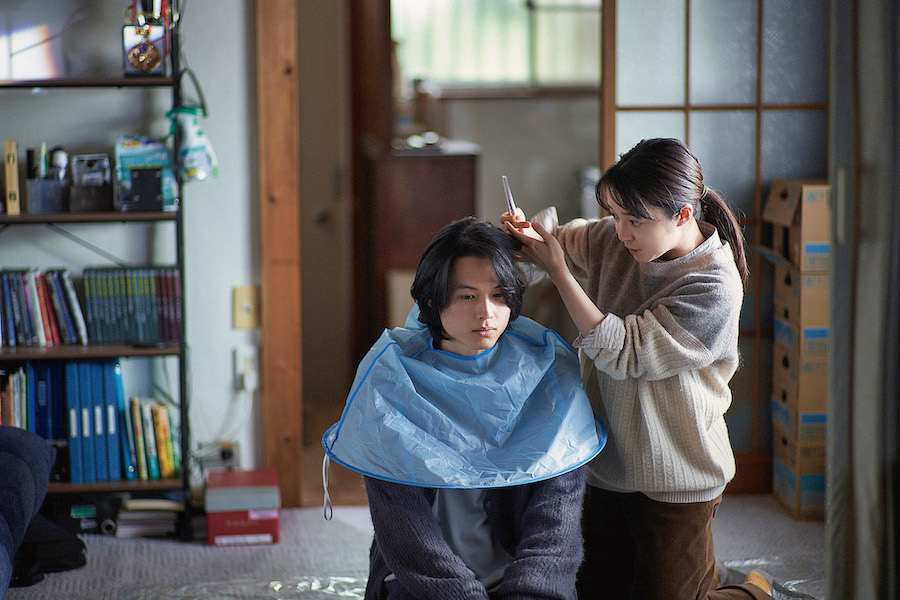 ALL THE LONG NIGHTS © Maiko Seo / 2024 All the Long Nights Film Partners
ALL THE LONG NIGHTS © Maiko Seo / 2024 All the Long Nights Film Partners
It sounds like a purely dramatic film on paper, but as it unfolds, the movie becomes funny and ironic. It tells a story of mutual and community support, wherein the two protagonists finally mature, fully integrating their conditions into their lives. They can now realistically look at their future, dream a little bigger, but only after accepting their condition as part of themselves. It's a small film that captivates us by addressing sensitive topics with disarming simplicity and delicacy. Surely for audience members who can relate to the protagonists' situation through direct experience or proximity to those suffering from similar conditions, it will be even more moving and cathartic. It's lovely.
At the end of the day, it's the best film I've screened (thus far) at the 74th Berlinale. It might be less ambitious and daring than the competition, but it's decidedly more solid.



Reader Comments